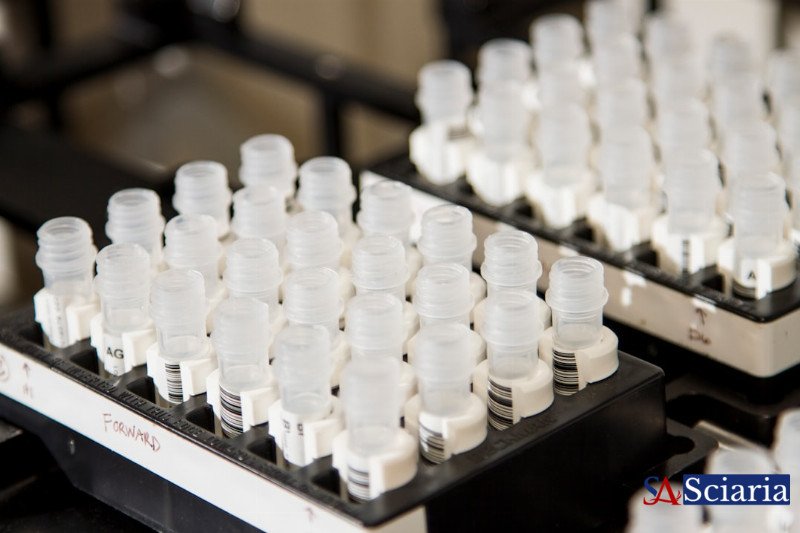Beyond the Blueprint: Why Your Genes Don't Tell the Whole Story of Your Health
- Sciaria
- Genetics
- Oct 14, 2025
- 0 Comments

In an age of advanced genetic testing, it’s tempting to believe that our DNA holds all the answers to our future health, personalities, and even our destiny. The Human Genome Project, coupled with the rise of direct-to-consumer genetic kits, has fueled a fascination with our personal blueprints. We can now uncover predispositions to certain diseases, learn about our ancestry, and even understand how we might respond to specific medications. However, while genetics offers incredible insights, it’s crucial to understand its surprising and significant limits. Your genes are a powerful script, but they are far from the full story.
One of the primary misconceptions is that a genetic predisposition equals an inevitable outcome. This is rarely the case, especially for common chronic diseases like heart disease, diabetes, or many forms of cancer. While some conditions, like Huntington's disease, are monogenic (caused by a single gene mutation with high penetrance), most complex traits and diseases are polygenic, meaning they are influenced by hundreds, if not thousands, of genes, each contributing a tiny piece to the puzzle. Furthermore, these genes interact with each other in intricate ways, creating a web of influence that is still largely a mystery. A genetic risk factor for a common disease might increase your odds, but it doesn't seal your fate.
The undeniable co-star in the drama of your health is your environment and lifestyle. Think of your genes as the hardware and your environment as the software that dictates how that hardware performs. Diet, exercise, sleep patterns, stress levels, exposure to toxins, and even social interactions profoundly impact gene expression and disease risk. Two individuals with identical genetic predispositions for type 2 diabetes might have vastly different health outcomes based on their lifestyle choices. One might develop the condition due to a sedentary lifestyle and poor diet, while the other, through mindful living, might never experience it.
Adding another layer of complexity is the field of epigenetics. This refers to changes in gene expression that don't involve alterations to the underlying DNA sequence. Essentially, epigenetic modifications act like on/off switches, determining whether a gene is read and translated into a protein. These switches can be influenced by environmental factors – what you eat, where you live, and even your early life experiences can leave epigenetic marks on your DNA, altering how your genes function without changing the blueprint itself. This means your lifestyle choices today can literally modify how your genetic inheritance is expressed, providing a powerful argument for proactive health management.
Ultimately, while genetic information is an invaluable tool for understanding individual predispositions and guiding personalized medicine, it's not a crystal ball. It’s a starting point, not the destination. Our health is a dynamic interplay between our genetic inheritance, our environment, and the conscious choices we make every day. Embracing this holistic view empowers us to move beyond the deterministic narrative of our genes and actively shape our well-being, proving that while our DNA provides the blueprint, we hold the pen that writes the final story.
Comments (0)
Rate This Blog
Top Blogs by Rating
The Uncomfortable Truth: Why G...
By Sciaria
The Silent Language of Your Bo...
By Sciaria
The Collective Gasp: Why Live...
By Sciaria
Favorite Blog
Unveiling the Hidden Journeys:...
By Sciaria
Electro-Pulse: Unveiling the U...
By Sciaria
Reclaim Your Day: Mastering th...
By Sciaria
Related Research
Studi komparatif antara jaringan syaraf tiruan boltzman machine dan algoritma genetika untuk optimasi traveling salesman problem
Marta arnaldi. the diasporic canon: american anthologies of contemporary italian poetry, 1945–2015
Image classification of human face shapes using convolutional neural network xception architecture with transfer learning
Share
Notice Board
- PENUANGAN ECO ENZYME DAN EDUKASI LINGKUNGAN: STRATEGI KOLABORATIF UNTUK MENGURANGI PENCEMARAN AIR DI DAM OONGAN
- INTEGRASI NILAI-NILAI BUDAYA LOKAL DALAM CIVICS EDUCATION CURRICULUM: UPAYA MENUMBUHKAN KESADARAN MULTIKULTURAL PESERTA DIDIK
- LA IDENTIDAD SALESIANA A PARTIR DE LA HERáLDICA ECLESIáSTICA. ORIGEN, COMPOSICIóN, FIGURAS Y LEMA DEL ESCUDO DE LA CONGREGACIóN SALESIANA (1884)





